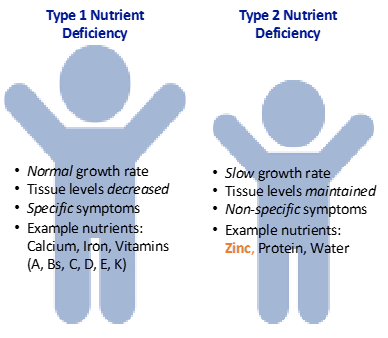
Research
Nutrigenomics & Nutrigenetics
The ChoiS Lab investigates the interaction between genes and nutrients with approaches of nutrigenomics and nutrigenetics. Nutrigenomics is the study of the effects of nutrients on gene expression and genome at the molecular level, and nutrigenetics focuses on how genes and genetic variations affect nutrient metabolism in the body. To study nutrition with these two lenses, the lab adopts basic science tools such as molecular and cell biology, biochemistry, functional genetics, and omics. The research data obtained using these perspectives will extend translational nutrition knowledge, contributing to the foundation for maintaining good health, especially channels of personalized nutrition.
Zinc & Other Micronutrients

While a key research area is micronutrient metabolism, the ChoiS lab currently focuses on zinc nutrition. Zinc is essential for the growth of all forms of life, including microorganisms, plants, and animals. In humans, it is the second most abundant transition metal ion, where it is primarily found within cells. Given its ubiquitous nature and relatively copious concentration in cells—the basic unit of our body, zinc serves important functions at the cellular, tissue, and systemic levels. In fact, 10% of the entire human proteome is estimated to bind zinc ions, and the majority of zinc‐bound proteins are proposed to be involved in the regulations of diverse gene expressions.
 Although severe zinc deficiency is uncommon in the US, marginal deficiency occurs in groups with inadequate zinc absorption, increased loss of zinc, and increased requirements for the nutrient. As a Type 2 nutrient, zinc shows non-specific deficiency symptoms such as slow growth rate and consistent tissue nutrient levels. Such systemic and unnoticeable effects of zinc deficiency, in addition to the absence of a decisive method to assess body zinc status, makes it difficult to appreciate the importance of this nutrient and the need to address its deficiency. To better acknowledge the risk and prevent unwanted health outcomes associated with zinc deficiency, the ChoiS lab strives for a comprehensive understanding of zinc metabolism which is regulated by a number of genetic and physiological factors.
Although severe zinc deficiency is uncommon in the US, marginal deficiency occurs in groups with inadequate zinc absorption, increased loss of zinc, and increased requirements for the nutrient. As a Type 2 nutrient, zinc shows non-specific deficiency symptoms such as slow growth rate and consistent tissue nutrient levels. Such systemic and unnoticeable effects of zinc deficiency, in addition to the absence of a decisive method to assess body zinc status, makes it difficult to appreciate the importance of this nutrient and the need to address its deficiency. To better acknowledge the risk and prevent unwanted health outcomes associated with zinc deficiency, the ChoiS lab strives for a comprehensive understanding of zinc metabolism which is regulated by a number of genetic and physiological factors.
Important roles of zinc in biochemical and genetic functions provide a premise of dysregulated zinc metabolism in many pathophysiological conditions including cancers, diabetes, heart diseases, and neurological diseases. To better understand the interactions of zinc nutriture and human health problems, the ChoiS lab aims to elucidate the mechanisms that underlie disrupted zinc nutrition in these diseases by means of investigating the gene elements crucial in the regulation of both zinc metabolism and diseases.